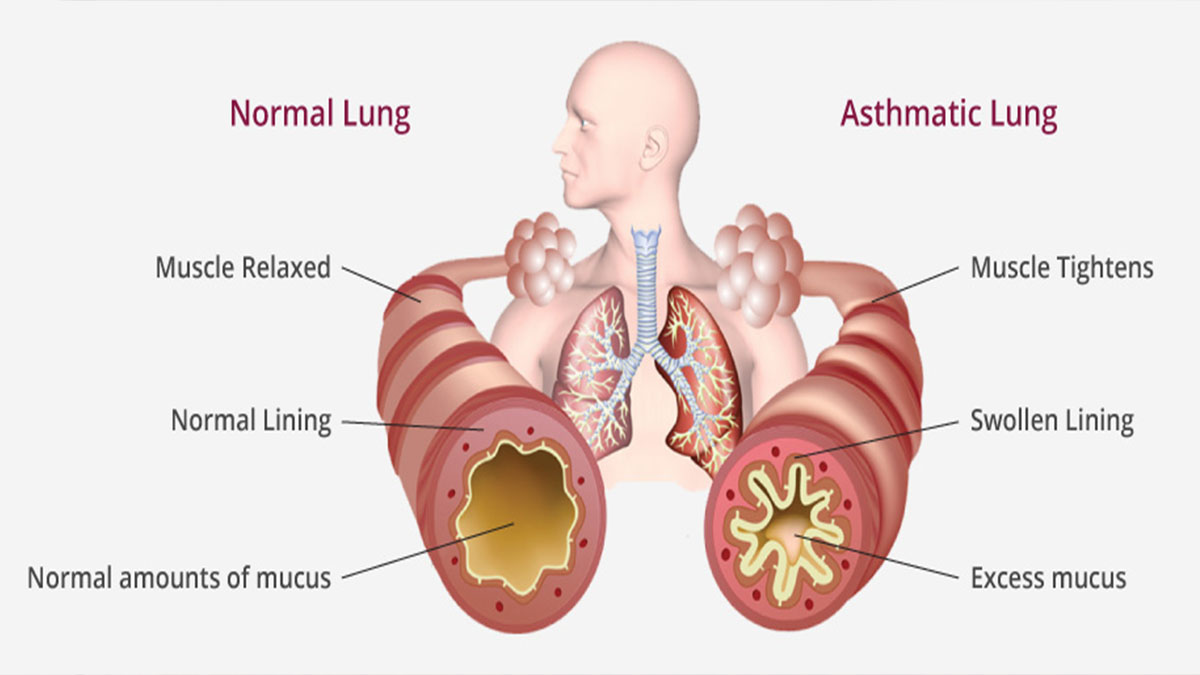
Asthma is a chronic respiratory condition that affects millions of people worldwide. Characterized by inflammation and narrowing of the airways, asthma can cause symptoms such as wheezing, shortness of breath, chest tightness, and coughing. But how is asthma acquired? The development of asthma is influenced by a combination of genetic, environmental, and lifestyle factors. In this article, we’ll explore the key contributors to the onset of asthma and provide insights into how it can be managed.
Genetic Factors: The Inherited Component
One of the most significant factors in the development of asthma is genetics. If you have a family history of asthma, allergies, or other respiratory conditions, you may be at a higher risk of developing asthma yourself. Certain genes influence the immune system’s response to environmental triggers, leading to the inflammation and airway hyperreactivity seen in asthma.
However, having a genetic predisposition does not guarantee that you will develop asthma. It simply means that you are more susceptible to it, especially if other risk factors are present.
Environmental Triggers: The External Influences
Environmental factors play a crucial role in the development of asthma, particularly during childhood. Exposure to certain allergens and irritants can trigger asthma symptoms or contribute to its onset. Common environmental triggers include:
- Airborne Allergens: Pollen, dust mites, pet dander, mold, and cockroach droppings are some of the most common allergens that can trigger asthma. Repeated exposure, especially in early childhood, can increase the likelihood of developing asthma.
- Respiratory Infections: Viral respiratory infections, such as the common cold or respiratory syncytial virus (RSV), can cause inflammation in the airways and potentially lead to asthma. Severe or recurrent infections in early childhood are particularly concerning.
- Air Pollution: Long-term exposure to air pollution, including car exhaust, industrial emissions, and tobacco smoke, can contribute to the development of asthma. Children who grow up in urban areas with high pollution levels are at a higher risk.
- Occupational Exposures: Certain occupations, such as farming, hairdressing, or working with chemicals, can expose individuals to irritants and allergens that may lead to asthma. This is known as occupational asthma.
Lifestyle and Health Factors: Personal Choices and Conditions
Beyond genetics and environment, lifestyle and health factors also influence the risk of acquiring asthma:
- Obesity: There is a well-documented link between obesity and asthma. Excess body weight can lead to inflammation and reduced lung function, making individuals more susceptible to asthma.
- Smoking: Smoking, or exposure to secondhand smoke, significantly increases the risk of developing asthma. Smoking during pregnancy also raises the risk of the child developing asthma.
- Diet: Some studies suggest that a diet high in processed foods and low in fruits, vegetables, and omega-3 fatty acids may increase the risk of asthma. A diet rich in antioxidants and anti-inflammatory foods, on the other hand, may offer some protection.
- Stress: Chronic stress and anxiety can exacerbate asthma symptoms and may even play a role in its development. Stress affects the immune system and can lead to inflammation in the airways.
Prevention and Management
While some risk factors for asthma, such as genetics, cannot be controlled, others can be managed to reduce the likelihood of developing the condition. Here are some preventive measures:
- Reduce Allergen Exposure: Keep your home clean and free of dust, mold, and pet dander. Use air purifiers and avoid exposure to known allergens.
- Avoid Tobacco Smoke: If you smoke, seek help to quit. Avoid exposure to secondhand smoke as much as possible.
- Maintain a Healthy Weight: Regular exercise and a balanced diet can help maintain a healthy weight, reducing the risk of asthma.
- Manage Stress: Practice stress-reduction techniques such as meditation, deep breathing, or yoga to help manage stress levels.
- Early Intervention: If you or your child has frequent respiratory infections or early signs of asthma, seek medical advice. Early diagnosis and intervention can help manage the condition effectively.
Conclusion
Asthma is a complex condition with multiple causes, including genetic predisposition, environmental factors, and lifestyle choices. Understanding how asthma is acquired can help individuals take proactive steps to reduce their risk and manage the condition effectively. By minimizing exposure to triggers and making healthy lifestyle choices, it is possible to live well with asthma and prevent its onset in those at risk.
